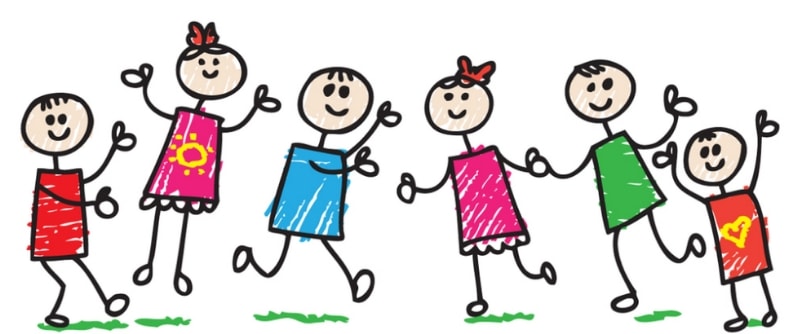Learning through play – Justifying Fun insights

Learning about the world around us is something we never stop doing. We absorb information through our senses from millions of different sights sounds and sensations everyday.
For Children, learning through play helps build an understanding of how the world works. In a safe environment play can take place without the pressure and consequences of the outside world. Understanding how interactions work and practicing through role play build a childs confidence and ability to deal with everyday situations outside of the play environment.
Children might also learn how to deal with launching a rocket to a far away planet full of rainbow coloured unicorns, befriend space monsters and drive cardboard box cars. Anything is possible with play and that is why it is so much fun while also being educational.
The oxford dictionary definition of play is ‘Engage in activity for enjoyment and recreation rather than a serious or practical purpose’ [oxford dictionary] Fun is important to us, as you can probably tell by looking at our website name, but play can have some very practical applications in life, especially for young children.
We are going to take you on an exciting journey through children’s play, introducing you to some important facts but most importantly some fun ideas and thoughts.
Learning to communicate through play
Child play isn’t just for the purpose of getting paint everywhere and giving you the opportunity to chase your children and pets with the hoover 5 times a day. The noises youngsters make can seem like gibberish, but there is a point to all these funny words and sounds they express.
Becoming skilled in the use of a language requires practice and experimentation. Play allows children the freedom to investigate language in a low pressure environment where mistakes don’t matter.
The importance of Role Playing games for language practice
Role Play allows children to pick up and practice the conversational mechanism of turn taking. Knowing when it is your turn to speak is important and a lot of this is learnt through exposure to other peoples conversations. Turn Taking isn’t as straightforward as you might think. Sometimes tones, such as those raised tones that signal questions or body language are subtle indicators of who’s turn it is to speak next.
In a play setting children can practice freely using the language they have absorbed in everyday life. It can be amusing to watch children talking at the same time, gradually learning through the use of eye contact and body language to demonstrate when turns should take place. Sometimes this use of body language can be quite forceful with pushing and shouting to ask for a response if the other child doesn’t realise a response is required
Visual and physical expression
How parents shape learning through play
When children are playing, parents often ask lots of questions,
“What is this?” is very common, but what affect does it have on children’s learning.
These concept checking style questions are great for confirming understanding of the meaning and use of vocabulary but don’t allow children to fully understand language use in real life situations.
Children naturally play using their imagination to transform even the simplest household objects into tools that shape and help construct wonderful worlds.
Through play, adults should encourage children by performing actions and using the verbs associated with them. Language acquisition happens fastest through association with an action ( icommunicatetherapy ). Build children’s confidence through letting them lead any play activities. Guiding them is good if they are misunderstanding something important, but letting play flow naturally will allow them to practice and perform actions of their own choosing in a much more realistic scenario.
Autism and imagination
Autistic children have an incredible ability to see the world in a different way than we do. There is a wonderful story on the Huffington Post about an autistic boy who loves everything about buses and bus routes. For a long time he imagined a bus stop outside his house, when one didn’t exist. In his mind this bus stop was there and for years he pretended to see buses arrive there. One day when a bus took a wrong turn and got stuck on the street outside his house he accepted it in just the same way as the imaginary bus, it wasn’t any more exciting because it was real. This shows how imagination, play and reality aren’t so different after all
Families with autistic children have to learn to alter their view of and interaction with the world around them. Families with autistic children often need family focused counselling and interaction with other people familiar with autistic life. With support it is possible to learn that there isn’t such a great boundary between autistic imagination and the reality we have learnt to perceive as “normal”.
The blurred boundary between imagination and reality
Where does imagination end and reality begin, some people ask. Well, there is definitely no clear cut boundary between them. Reality involves both the use of experimentation and imagination all the time, even as adults.
Children are born without any knowledge of the world around them and with even less experience of life. In order to test out what works children have to experiment and begin to experience everything they possibly can.
